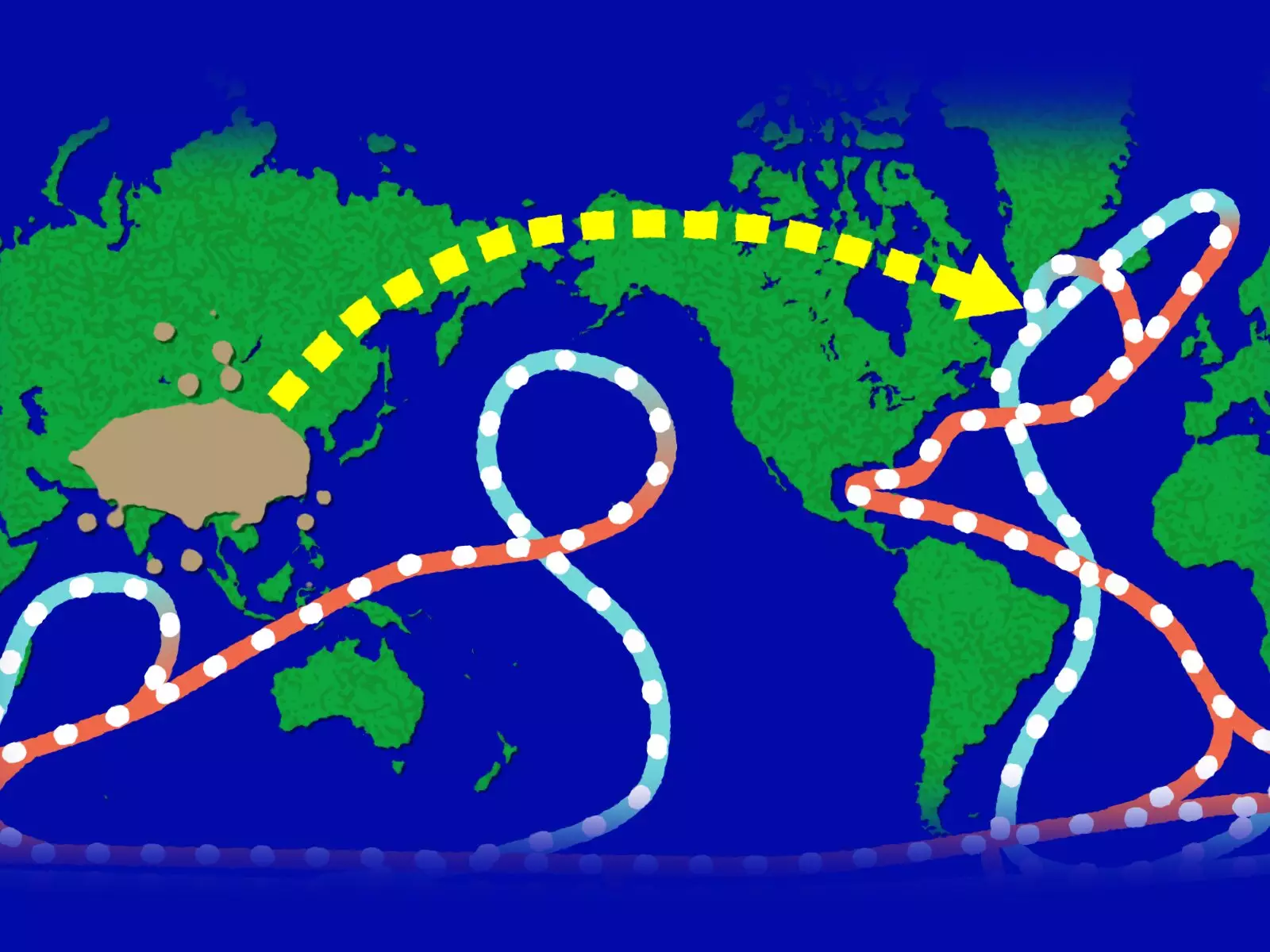The Atlantic Meridional Overturning Circulation (AMOC) has been a subject of intense scientific scrutiny since its first monitoring in 2004. The AMOC is a vital system of ocean currents in the Atlantic Ocean that plays a crucial role in regulating the climate of the surrounding continents. Often likened to a conveyor belt, the AMOC transports warm water northwards and cold water southwards, along with essential nutrients. If the AMOC were to slow down or collapse, it could have profound impacts on global climate patterns, similar to turning off the heater in the middle of winter.
New research published in Nature Communications sheds light on a previously overlooked factor influencing the AMOC: Asian aerosols. Jian Lu, an Earth scientist at the Department of Energy’s Pacific Northwest National Laboratory, co-authored the paper titled “Increased Asian Aerosols Drive a Slowdown of Atlantic Meridional Overturning Circulation.” Lu’s collaboration with international scientists from the Ocean University of China and the Max Planck Institute for Meteorology in Germany revealed that aerosols emitted from human activities in Asia have a direct impact on the movement of the AMOC.
Lu and his team utilized climate model simulations to demonstrate how the increased emission of anthropogenic aerosols from Asia can disrupt the AMOC. The findings of the study highlight the role of Asian aerosols in slowing down the circulation of the Atlantic Ocean, challenging previous assumptions that focused primarily on aerosols from North America and Europe. By using a combination of existing data and advanced climate modeling tools, the researchers were able to uncover a previously unknown connection between Asian aerosols and the stability of the AMOC.
The research team’s work underscores the importance of reducing emissions of Asian anthropogenic aerosols not only to mitigate local air pollution but also to help stabilize the AMOC. The study’s findings suggest that the impact of Asian aerosols on the AMOC can have far-reaching consequences, influencing climate patterns across continents thousands of miles away. By understanding the intricate interactions between aerosols and ocean currents, scientists can gain valuable insights into how human activities are shaping the Earth’s climate system.
As the Earth’s climate continues to undergo rapid changes, it is essential to study the factors contributing to the stability of critical systems like the AMOC. The research on Asian aerosols and their impact on the Atlantic Meridional Overturning Circulation represents a significant advancement in our understanding of the complex interactions between human activities and ocean dynamics. By further investigating the relationship between aerosols and climate systems, scientists can pave the way for more informed decision-making and policy interventions to mitigate the effects of anthropogenic activities on the planet’s delicate balance.


Leave a Reply